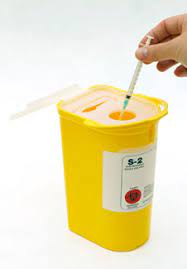In the battle against infectious diseases, effective biomedical waste management emerges as a crucial element in safeguarding public health. This blog post explores the pivotal role of proper biomedical waste management services in controlling the spread of infectious diseases. From the handling of contaminated materials to the disposal of hazardous waste, each step plays a vital role in mitigating the risk of disease transmission.
Section 1: Understanding the Threat
Infectious diseases pose a significant threat to public health, necessitating stringent measures for containment and prevention. The proper management of biomedical waste is essential, as these materials can harbor infectious agents that, if not handled and disposed of appropriately, may contribute to the transmission of diseases within healthcare facilities and the broader community.
Section 2: Classification of Infectious Waste
Biomedical waste encompasses a variety of materials, and infectious waste is a specific category that demands special attention. This includes items such as used gloves, contaminated dressings, and other materials that have come into contact with potentially infectious bodily fluids. Effective biomedical waste management services employ rigorous classification protocols to identify and segregate infectious waste from non-infectious materials.
Section 3: Stringent Packaging and Labeling
In the battle against infectious diseases, packaging and labeling become critical components of biomedical waste management. Infectious waste must be stored in containers that are leak-proof, puncture-resistant, and clearly labeled with biohazard symbols. Biomedical waste disposal services ensure that these strict standards are met to contain and prevent the spread of pathogens.
Section 4: Safe Transportation Protocols
The transportation of infectious waste demands adherence to strict protocols to minimize the risk of disease transmission. Biomedical waste disposal services employ specialized vehicles, trained personnel, and proper packaging to ensure the safe and secure transport of infectious materials. Stringent transportation protocols contribute to preventing accidental spills and contamination during transit.
Section 5: Treatment and Disposal Methods
Infectious waste requires specialized treatment to neutralize pathogens before final disposal. Biomedical waste management services employ advanced technologies such as autoclaving, incineration, or other approved methods to ensure the complete destruction of infectious agents. Compliance with disposal site regulations is equally crucial to prevent environmental contamination.
Section 6: Training and Education for Healthcare Personnel
A key aspect of infectious disease control through effective biomedical waste management is the ongoing training and education of healthcare personnel. Biomedical waste disposal services play a pivotal role in providing training programs that cover proper handling, segregation, and disposal practices. Well-trained healthcare staff are better equipped to minimize the risk of disease transmission within healthcare facilities.
Section 7: Community Awareness and Engagement
Effective infectious disease control extends beyond healthcare facilities to community-wide efforts. Biomedical waste services can actively engage with communities through awareness campaigns, providing information about the importance of responsible waste disposal practices. This fosters a sense of shared responsibility in preventing the spread of infectious diseases.
In conclusion, effective biomedical waste management services are indispensable in the control of infectious diseases. From stringent classification and packaging to safe transportation, treatment, and disposal methods, each step in the waste management process plays a crucial role in minimizing the risk of disease transmission. By prioritizing training, education, and community engagement, biomedical waste services contribute significantly to the broader effort of safeguarding public health and controlling the spread of infectious diseases.


No comments yet